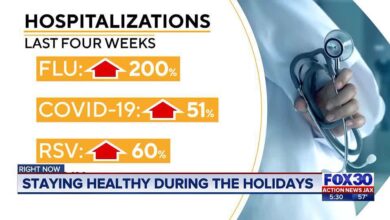
9 Smart Ways to Combat Stress Eating
9 Smart Ways to Combat Stress Eating: We’ve all been there – the day is going crazy, and the only thing that seems to soothe our nerves is a giant bag of chips. But what if there was a better way to manage those stress-induced cravings?
This article will explore 9 smart strategies to help you conquer stress eating and find healthier ways to cope with life’s inevitable ups and downs.
Stress eating is a common response to overwhelming feelings, but it can have a negative impact on both our physical and mental well-being. It’s a vicious cycle: stress leads to eating, which leads to guilt, which leads to more stress, and so on.
The good news is, there are effective ways to break free from this cycle and find lasting solutions.
Identify Stress Eating Triggers
Understanding the root causes of stress eating is crucial for effectively combating it. Recognizing your personal triggers allows you to develop strategies to manage them and break the cycle of emotional eating.
Finding healthy ways to manage stress is crucial, especially when it comes to preventing emotional eating. One strategy I’ve found helpful is incorporating more nutrient-rich foods into my diet. But are superfoods really as magical as they’re hyped to be?
It’s worth exploring the truth about their benefits, as explained in this article: how super are superfoods really. Ultimately, a balanced diet that includes plenty of fruits, vegetables, and whole grains is a much better approach than relying on a few “super” foods to solve all your nutritional needs.
This approach, combined with other stress management techniques, can make a real difference in combating those cravings and promoting overall well-being.
Common Triggers
Stress eating is often triggered by a combination of emotional, situational, and environmental factors. Identifying these triggers can provide valuable insights into your eating patterns.
Emotional Triggers
- Boredom:When we are bored, we may seek stimulation, and food can provide a temporary distraction.
- Loneliness:Feeling isolated can lead to emotional eating as a way to cope with loneliness.
- Anxiety:Stress and anxiety can trigger cravings for comfort foods, providing a sense of temporary relief.
- Anger:When we are angry, we may turn to food to soothe our emotions or as a way to express frustration.
- Sadness:Sadness can lead to emotional eating as a way to self-soothe and provide comfort.
Situational Triggers
- Social gatherings:Parties, events, and gatherings can create situations where we may overeat due to peer pressure or the abundance of food.
- Work deadlines:Stressful deadlines can lead to emotional eating as a way to cope with pressure.
- Travel:Disruptions to our routines and changes in our environment can trigger stress eating.
- Relationship conflicts:Arguments and disagreements can lead to emotional eating as a way to manage stress and anxiety.
- Financial worries:Money concerns can trigger stress eating as a way to cope with feelings of insecurity and uncertainty.
Environmental Triggers
- Food availability:Having easy access to unhealthy snacks or having a well-stocked pantry can contribute to stress eating.
- Television commercials:Ads for unhealthy food can trigger cravings and lead to impulsive eating.
- Social media:Exposure to images of food on social media can stimulate cravings and make it harder to resist unhealthy choices.
- Stressful environments:Being in a noisy, crowded, or chaotic environment can increase stress levels and lead to emotional eating.
Personalized Trigger Log
To effectively identify your stress eating triggers, create a personalized trigger log. This log can help you track your eating habits and identify patterns.
One of the 9 smart ways to combat stress eating is to have healthy, delicious meals readily available. But sometimes, even with the best intentions, we find ourselves reaching for takeout. Check out this helpful article on top excuses for not cooking at home and solutions for each to get some inspiration for overcoming those common hurdles.
Once you’ve mastered the art of home cooking, you’ll be well on your way to conquering stress eating and feeling your best!
Trigger Log:
Date: | Time: | Trigger: | Emotion: | Food Eaten: | Quantity: |
[Insert Table Rows Here]
This log allows you to document the specific triggers, emotions, and food choices associated with your stress eating. By reviewing your log regularly, you can gain valuable insights into your eating patterns and develop strategies to manage your triggers.
Nourish Your Body with Nutrient-Rich Foods

The food we consume plays a crucial role in our overall well-being, including our mental health. When we nourish our bodies with nutrient-rich foods, we provide the building blocks for a healthy brain and nervous system, which can help us better manage stress.
Stress eating can be a real challenge, but finding healthy alternatives can make a big difference. One of my favorite go-to meals when I’m feeling stressed is a light and flavorful shrimp fried quinoa with egg whites. It’s packed with protein and fiber, keeping me full and satisfied without the guilt of unhealthy cravings.
This, combined with other strategies like mindful eating and regular exercise, helps me manage stress and make healthier choices overall.
The Link Between Nutrition and Stress
A diet lacking in essential nutrients can contribute to increased stress levels. When our bodies are deprived of the vitamins, minerals, and antioxidants they need, our stress response system can become dysregulated. This can lead to increased cortisol production, the hormone associated with stress, and make us more susceptible to the negative effects of stress.
Nutrient-Rich Foods for Mental Well-being
Incorporating these foods into your diet can help reduce cravings and promote mental well-being:
- Omega-3 Fatty Acids:Found in fatty fish like salmon, tuna, and mackerel, omega-3 fatty acids are essential for brain function and have been linked to reduced anxiety and depression.
- Complex Carbohydrates:Whole grains, legumes, and vegetables provide a steady stream of energy and help regulate blood sugar levels, which can contribute to a more balanced mood.
- B Vitamins:These vitamins, found in leafy greens, nuts, and eggs, are essential for energy production and neurotransmitter function. B vitamins can help improve mood and reduce stress.
- Magnesium:A mineral found in dark leafy greens, almonds, and avocado, magnesium helps regulate neurotransmitters and can promote relaxation and reduce stress.
- Probiotics:Found in fermented foods like yogurt, kefir, and sauerkraut, probiotics support gut health, which is closely linked to mental well-being.
Sample Meal Plan
Here’s a sample meal plan incorporating nutrient-rich foods for stress management:
- Breakfast:Oatmeal with berries and walnuts, a glass of unsweetened almond milk.
- Lunch:Salad with grilled salmon, quinoa, and avocado.
- Dinner:Lentil soup with whole-grain bread, a side of steamed broccoli.
- Snacks:Greek yogurt with fruit, a handful of almonds, or a piece of dark chocolate.
Engage in Physical Activity
When stress levels rise, our bodies often crave comfort foods. However, engaging in physical activity can be a powerful antidote to stress eating. Exercise not only helps manage stress but also plays a vital role in regulating appetite and improving overall well-being.
Benefits of Exercise for Stress Reduction and Appetite Control
Exercise has a profound impact on our physical and mental health, particularly when it comes to managing stress and controlling appetite. Regular physical activity releases endorphins, which have mood-boosting effects, reducing stress and anxiety. Exercise also helps regulate blood sugar levels, preventing those energy crashes that often trigger cravings for unhealthy foods.
Incorporating Physical Activity into a Busy Schedule
Finding time for exercise can be challenging, especially with a busy schedule. However, even small bursts of activity can make a difference. Here are some tips for incorporating physical activity into your daily routine:
- Take the stairs instead of the elevator.This simple change can add a few minutes of activity to your day.
- Walk or bike to work or errands.If possible, choose active modes of transportation whenever you can.
- Schedule exercise into your calendar.Treat it like any other important appointment.
- Find an activity you enjoy.Whether it’s dancing, swimming, or hiking, choose something that motivates you to stay active.
The Role of Exercise in Releasing Endorphins and Improving Mood
Endorphins are natural painkillers and mood elevators produced by the brain. Exercise triggers the release of endorphins, leading to feelings of euphoria and well-being. This can help reduce stress, anxiety, and depression.
Practice Self-Care
Self-care is an essential component of stress management, and it plays a crucial role in reducing stress eating. When you prioritize self-care, you create a foundation of well-being that helps you cope with stress in healthier ways.
Benefits of Self-Care for Stress Eating
Self-care activities can help you manage stress eating by providing a sense of calm, relaxation, and emotional regulation. When you feel stressed, you are more likely to turn to food for comfort. However, by engaging in self-care practices, you can find alternative ways to manage your emotions and reduce the urge to overeat.
Self-Care Activities for Stress Management, 9 smart ways to combat stress eating
Here are some self-care activities that can help manage stress eating:
- Mindfulness Meditation:This practice involves focusing on the present moment without judgment. By paying attention to your breath and bodily sensations, you can calm your mind and reduce stress. Regular mindfulness meditation can help you develop a greater awareness of your emotions and triggers for stress eating.
- Yoga or Tai Chi:These gentle forms of exercise can help reduce stress and promote relaxation. They involve slow, controlled movements and deep breathing, which can help calm your nervous system and reduce the urge to overeat.
- Spending Time in Nature:Spending time outdoors can have a calming effect on the mind and body. The fresh air, sunlight, and natural surroundings can help reduce stress and promote a sense of well-being.
- Getting Enough Sleep:Sleep deprivation can exacerbate stress and lead to increased cravings for unhealthy foods. Aim for 7-8 hours of quality sleep each night to help manage your stress levels and reduce the urge to overeat.
- Engaging in Hobbies:Engaging in activities that you enjoy can help you de-stress and boost your mood. Whether it’s reading, painting, playing music, or gardening, find activities that bring you joy and help you unwind.
- Connecting with Loved Ones:Social support can be a powerful stress buffer. Spending time with loved ones, whether it’s family, friends, or a support group, can help you feel connected and reduce feelings of isolation.
- Setting Boundaries:Saying no to commitments that overwhelm you can help you prioritize your well-being. By setting boundaries, you can create more space in your life for self-care and stress management.
Final Summary: 9 Smart Ways To Combat Stress Eating
By taking control of your stress triggers, practicing mindful eating, and incorporating healthy coping mechanisms, you can finally say goodbye to stress eating and hello to a healthier, happier you. Remember, it’s not about being perfect, it’s about progress. Be kind to yourself, celebrate your victories, and keep moving forward.
You’ve got this!






